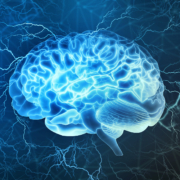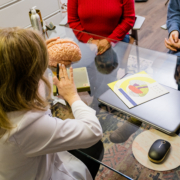How do I know if I have dementia?
As we age, we commonly experience moments of forgetfulness and lapses in memory. That does not, however, mean we are experiencing signs of dementia. Dementia is something totally different—something that persists and potentially worsens over time. It is something that can begin to significantly impact the lives of the patient and those they love.
So how does one become diagnosed with dementia?
Diagnosing dementia requires a careful medical history and examination. The history may involve a family history and a detailed neurological exam.
Laboratory blood studies are useful in determining whether there are infectious issues, hormonal imbalances, or nutritional deficiencies that may be at the cause of cognitive decline.
Psychological issues sometimes may be at the core of poor concentration, as well. In some cases, these can appear to be the cause of forgetfulness and other memory problems. With this in mind, a psychological assessment is often a helpful component of diagnosing dementia, too.
Brain scans (such as a CAT scan) may be useful to rule out brain tumors, and Magnetic Resonance Imaging (MRI) can provide a detailed image of brain abnormalities.
Neuropsychology can play a role, too.
Neuropsychological testing is extremely helpful in assessing changes in one’s thinking. Specifically, a neuropsychological exam can help in determining specific cognitive issues that are salient features of a person’s difficulties.
Assessing memory, attention reasoning, judgment, and verbal and non-verbal abilities are all part of a standard neuropsychological exam, and these data points can be extremely useful not only in detection and diagnosis of a dementia, but also in assessing the severity of deficits and impact on functioning and is used to track progression over time.
If you suspect a loved one may be experiencing dementia, connect with that loved one’s doctor or reach out to a neuropsychologist today.
This article has been factchecked. For more about that process, click here.









